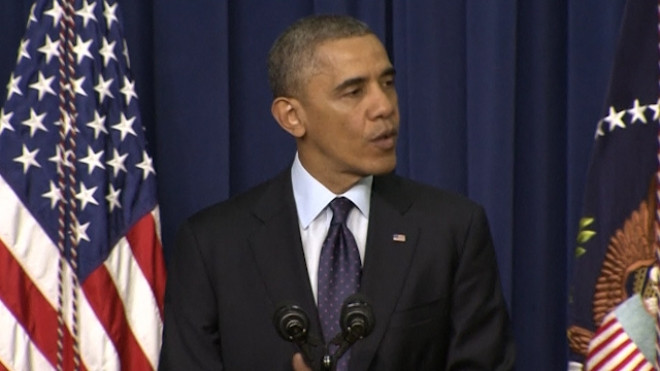US Urges Japan to Apologise For Military Prostitution of "Comfort Women"

President Barack Obama has signed an expenditure bill into law, urging the Japanese government to apologise for the use of "comfort women" during the Second World War.
Over 200,000 women of different nationalities including Korean, Chinese and Philippine origin were forced into sex slavery and trafficking by the Japanese military. The prostitution corps involved women from across the globe, with many from occupied countries. The "comfort stations" also involved a small number of women from Holland and Australia.
In many testimonies, women were abducted from their homes in countries under Japanese control. Some were lured by the promise of work, before they were incarcerated in the stations.
The bill, called H.Res 121, calls for the Japanese government to "formally acknowledge, apologise and accept historical responsibility in a clear and unequivocal manner".
They have urged Japan's prime minister Shinzo Abe to apologise publicly and for leading figures to "refute claims denying the existence and purpose of the system as well as to educate current and future generations about this horrible wartime crime".

The document is the first of its kind to be included in a US congress bill, according to China.org.cn. There have been two reasons cited for the US Congress to pass the law.
It could be a symbolic gesture, as US lawmakers and officials may be uncomfortable with the views of a select few Japanese leaders on the country's role in WW2.
Alternatively, or in addition, members of Congress may be worried about relations with the Japanese government and the actions of some of the country's leaders, which may threaten regional stability.
Following Abe's visit to the Yakusuni Shrine in December, the US embassy announced: "The United States is disappointed that Japan's leadership has taken an action that will exacerbate tensions with Japan's neighbors."
By addressing "comfort women" and other sensitive issues, it could prevent what could turn into a structural crisis and encourage regional leaders to work towards reconciliation.
Another reason, according to China.org.cn, is that some US leaders have been exerting pressure on Japan to strengthen its defence forces within the context of US-Japan Security Treaty.
It aims to prevent the Japanese government from utilising an independent defence policy, as the current climate under Abe's rule could see the country move towards nationalist militarism.
Currently, however, Washington wants Tokyo to become more engaged in international security and help maintain regional equilibrium within the context of the US-Japan alliance.
© Copyright IBTimes 2025. All rights reserved.






















